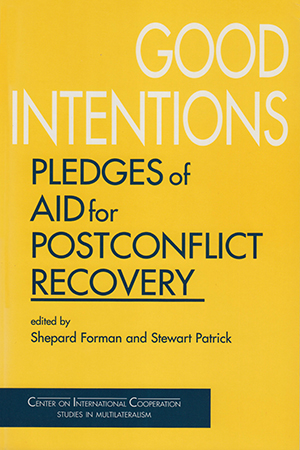
- 2000/432 pages
- Center on International Cooperation Studies in Multilateralism
Good Intentions:
Pledges of Aid for Postconflict Recovery
In each of six case studies, the coauthors (drawn from both donor states and recipient countries), evaluate multilateral efforts to support sustainable recovery and peacebuilding in societies emerging from protracted violence. They first establish the timing, composition, and objectives of aid pledged by the donor community. They then analyze the conditions that donors placed on their assistance, the mechanisms they created to coordinate it, and donor performance in delivering it. Next, they evaluate the recipient's ability to absorb external assistance and the impact that this aid has had for reconstruction and peacebuilding goals. Finally, they assess the causes, consequences, and lessons of any gaps between pledges and disbursements. What explains shortfalls in aid disbursement? And what do these recent experiences suggest for improving the multilateral design, mobilization, and coordination of assistance to postconflict societies?
Good intentions notwithstanding, inadequate preparation, poor coordination, and lack of perseverance can threaten the recovery of vulnerable polities whose collapse would endanger regional peace and security.







